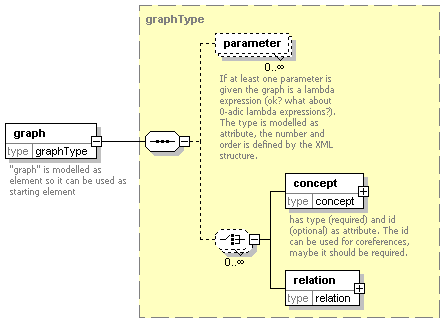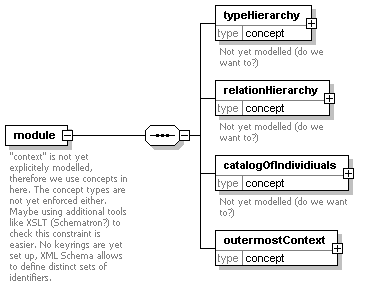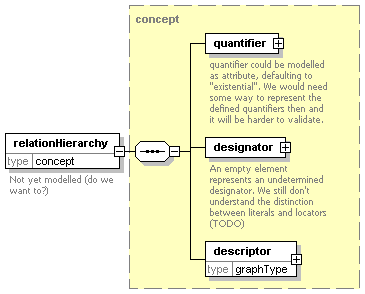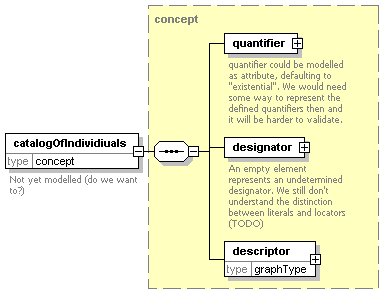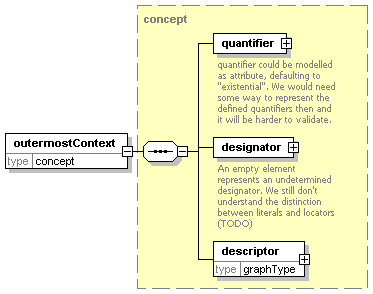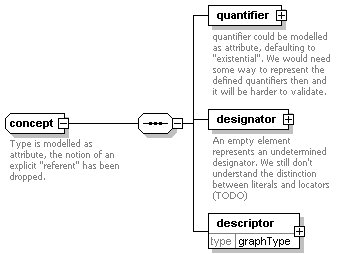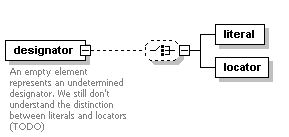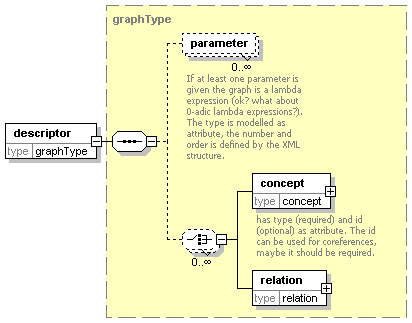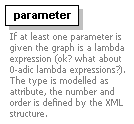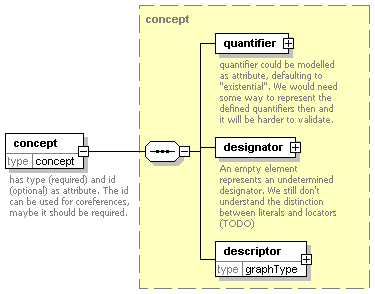| source |
<xsd:complexType name="concept">
<xsd:annotation>
<xsd:documentation>Type is modelled as attribute, the notion of an explicit "referent" has been dropped.</xsd:documentation>
</xsd:annotation>
<xsd:sequence>
<xsd:element name="quantifier">
<xsd:annotation>
<xsd:documentation>quantifier could be modelled as attribute, defaulting to "existential". We would need some way to represent the defined quantifiers then and it will be harder to validate.</xsd:documentation>
</xsd:annotation>
<xsd:complexType>
<xsd:choice>
<xsd:element name="existential"/>
<xsd:element name="universal">
<xsd:annotation>
<xsd:documentation>This is different compared to section 6.7 of the standard draft, where the universal quantifier is a defined quantifier.</xsd:documentation>
</xsd:annotation>
</xsd:element>
<xsd:element name="defined" type="xsd:string">
<xsd:annotation>
<xsd:documentation>How to model this one? (TODO)</xsd:documentation>
</xsd:annotation>
</xsd:element>
</xsd:choice>
</xsd:complexType>
</xsd:element>
<xsd:element name="designator">
<xsd:annotation>
<xsd:documentation>An empty element represents an undetermined designator. We still don't understand the distinction between literals and locators (TODO)</xsd:documentation>
</xsd:annotation>
<xsd:complexType>
<xsd:choice minOccurs="0">
<xsd:element name="literal"/>
<xsd:element name="locator"/>
</xsd:choice>
</xsd:complexType>
</xsd:element>
<xsd:element name="descriptor" type="graphType"/>
</xsd:sequence>
<xsd:attribute name="type" type="xsd:string" use="required"/>
<xsd:attribute name="id" type="xsd:string" use="optional"/>
</xsd:complexType> |
